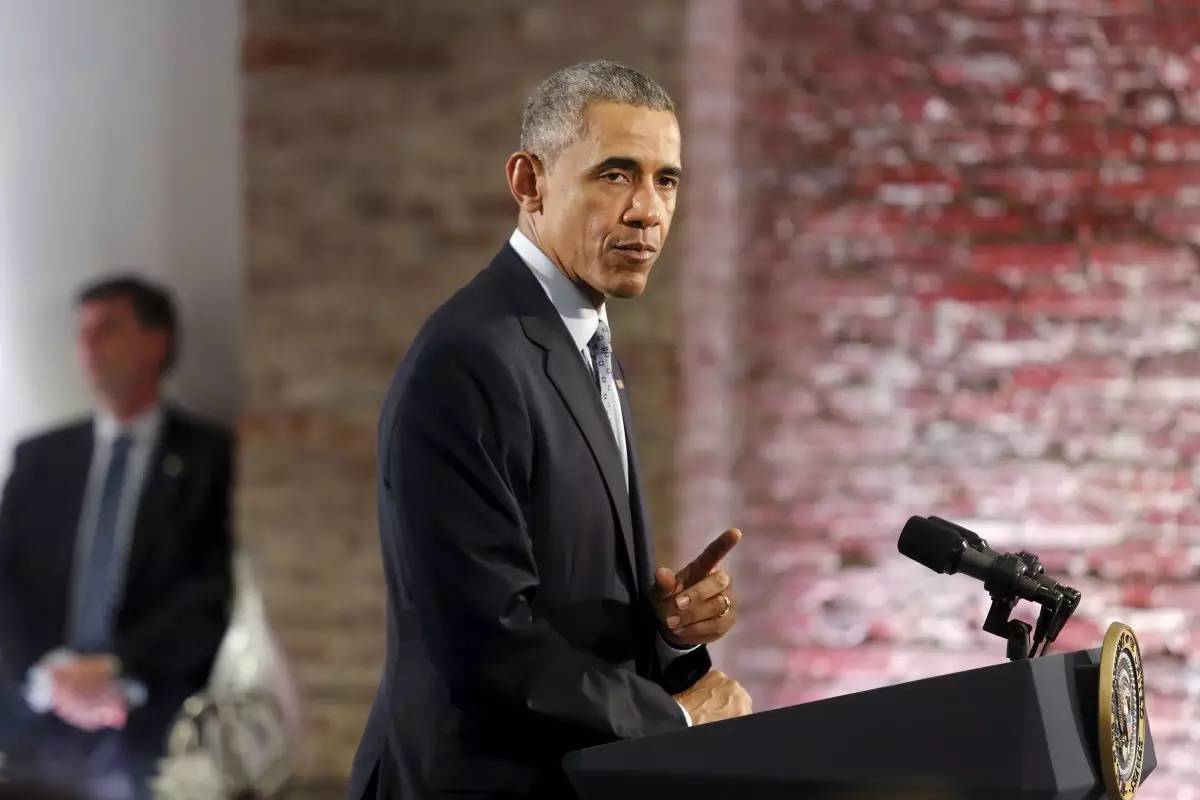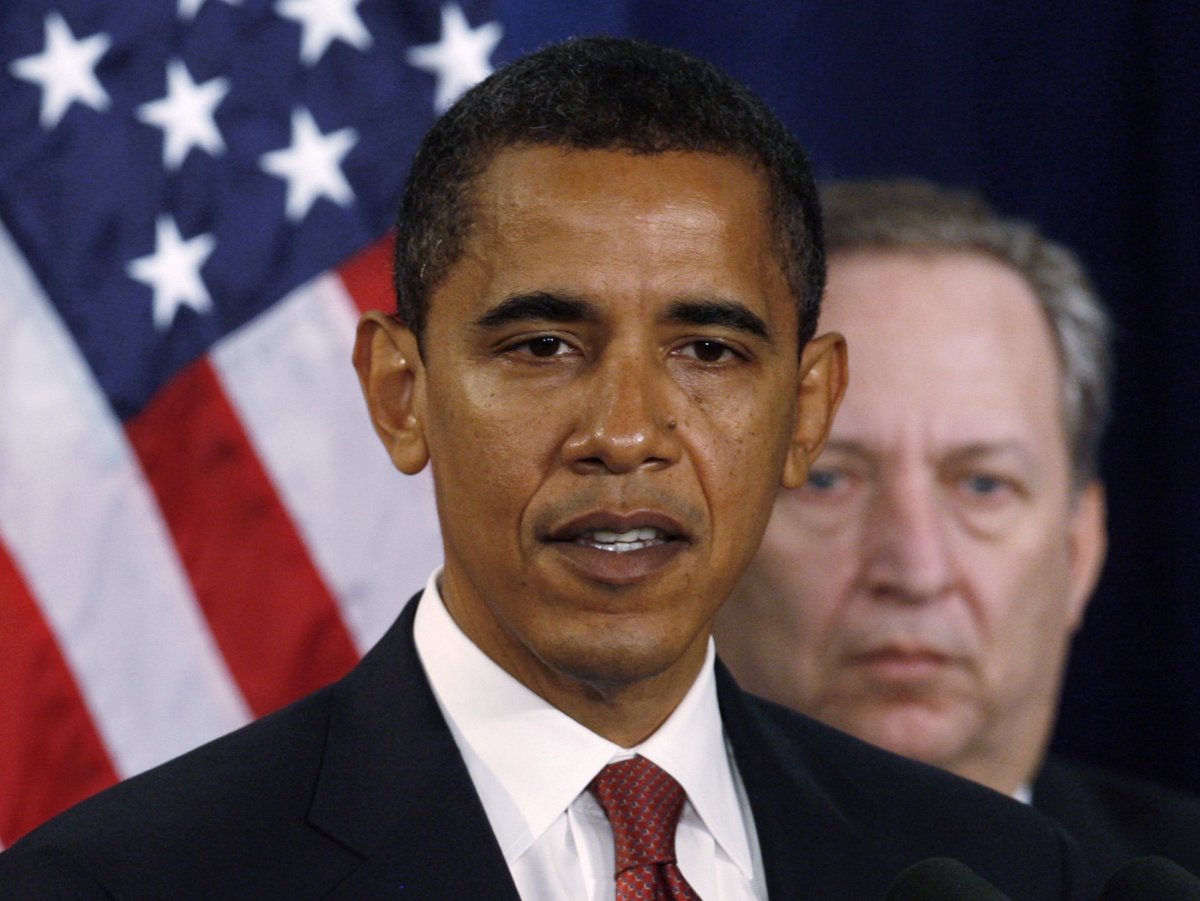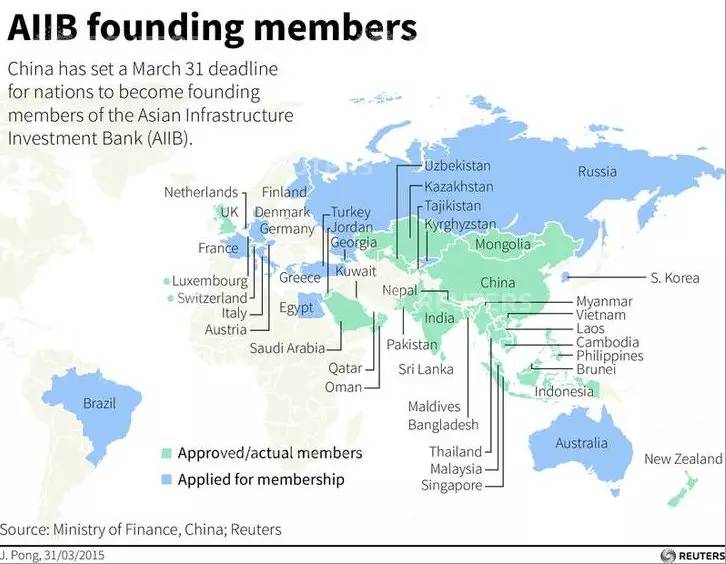
美国对亚投行的态度见证了美国已丧失在全球经济新秩序中的霸主地位
劳伦斯·萨默斯(Lawrence Henry("Larry") Summers),美国著名经济学家,美国国家经济委员会主任。在克林顿时期担任第71任美国财政部部长,曾任哈佛大学校长。因为研究宏观经济的成就而获得约翰·贝茨·克拉克奖。
如果美国前财长萨默斯是一个国家,他一定会成为亚洲基础建设投资银行(简称“亚投行”)的首创成员国。在他看来,美国对亚投行的态度见证了美国已丧失在全球经济新秩序中的霸主地位。
“过去一个月可能被视为美国在全球经济体系丧失其担保人角色的时刻。”萨默斯写到:“自从布雷顿森林以来,我无法想到任何事件能够与这件事相提并论:即中国努力筹建一家重要的新机构(亚投行),而美国没能说服其传统盟友不加入这家机构,从英国开始。”
---------
以下为萨默斯撰文翻译:
过去一个月可能被视为美国在全球经济体系丧失其担保人角色的时刻。的确,美国过去也曾经历过一些挫败期,有时美国的行为也会显得很不多边主义,例如1971年的尼克松冲击,终结了美元兑黄金的可兑换性。但我无法想到任何事件能够与这件事相提并论:即中国努力筹建一家重要的新机构(亚投行),而美国没能说服其传统盟友不加入这家机构,以英国为首。
这一战略和战术的失策并非一日之寒,也应当令美国全面重估其处理全球经济的方式。随着中国的经济规模逐渐挑战美国,且新兴市场已占全世界产出过半,全球经济架构需要显著调整。美国各方面的政治压力已让这个国家变得日益失灵。
很大程度上是因为右派的阻力,美国未能批准自己在2009年力推的国际货币基金组织治理改革,让自己落到孤立的地步。这个改革将补充IMF资源,促进大家对全球的经济信心。更重要的是,它将让中国和印度等国家得到更多IMF投票权,进一步与其经济重要性相匹配。
与此同时,来自左派的压力则导致现有的一些开发银行在基础设施项目投资上面临各种限制,结果是导致这些开发银行作为投资方低位削弱,尽管许多发展中国家现在视基础设施融资为最主要的外部融资需求。

美国既无法兑现自己的承诺,其政策又阻碍了其他国家想要从现有机构提供或获取融资的渠道。那么中国建立亚投行是非常显而易见的选择。这一倡议如何推进的战术方法的确有待商榷,但如今更大的问题是战略。以下是美国领导人需要牢记在心的三诫:
第一,美国领导人必须在国内有一个两党制的基础,避免笼统的伪善,在追求自我利益上固步自封。只要我们主要政党之一反对所有贸易协定,其他政党又反对向国际组织提供融资,那么美国就不能塑造全球经济体系。
对于美国官员要求其他国家调整政策,而他们自己却声称美国各州监管者、独立机构和辖区行动不在他们的掌控范围内,其他国家有理由对此感到郁闷。由其是当许多外国企业主张美国的行为引发了真正的法制问题。
美国执政党的合法性取决于我们是否能抵抗滥用这一权力来追求地方利益的诱惑,即便当利益显得如此强烈。如果我们因为一些安全目标而过激地限制美元的使用,我们将无法维持美元在国际体系里的主要地位。
第二,在全球以及国内政治中,中产阶级最重要。似乎目前主导全球议程的都是精英们的担忧事项,例如知识产权、投资保护、监管协同,以及一些对于全球贫困和后代的道德担忧,而对于中产阶层却给予甚少。在工业化国家(以及拥有日益增加的城市人口的发展中国家),不为工薪阶级谋福利的方式是不可能在长期内奏效的。
第三,我们或许已经进入了资本过剩和通缩压力显著的时代。需求在一段时间内可能都无法跟上供给。到2020年,没有一个大型工业化国家的市场会看到真实利率能高出零利率很多,通胀目标也恐怕无法实现。未来的当务之急必须是促进投资,而不是强制减支。当前的体系将调整的重担压在了“借款”国家。当今世界需要一个对称的体系,对“盈余”国家也要施加压力。
上述训诫仅仅是抛砖引玉,许多问题亟待解决。有关全球公共产品,有关当前时代所需要的行动速度和清晰度,有关ZF之间和非ZF行动者之间的合作,如此种种。至关重要的是,过去一个月发生的事件将被未来的历史学家们不仅视为一个时代的结束,也敲了一记有益的警钟。
-------
英语原文:
LARRY SUMMERS: The US may have lost its role as the world’s economic leader
This past month may be remembered as the moment theUnited States lost its role as the underwriter of the global economic system.
True, there have been any numberof periods of frustration for theUnited States before and multiple times when U.S. behavior was hardly multilateralist, such as the 1971 Nixon shock ending the convertibility of the dollar into gold.
But I can think of no event since Bretton Woods comparable to the combination ofChina’s effort to establish a major new institution and the failure of the United States to persuade dozens of its traditional allies, starting with Britain, to stay out.
This failure of strategy and tactics was a long time coming, and it should lead to a comprehensive review of theU.S. approach to global economics. With China’s economic size rivaling that of the United Statesand emerging markets accounting for at least half of world output, the global economic architecture needs substantial adjustment. Political pressures from all sides in the United States have rendered the architecture increasingly dysfunctional.
Largely because of resistance from the right, the United Statesstands alone in the world in failing to approve International Monetary Fund governance reforms that Washington itself pushed for in 2009. By supplementing IMF resources, this change would have bolstered confidence in the global economy. More important, it would come closer to giving countries such asChina and Indiaa share of IMF votes commensurate with their increased economic heft.
At the same time, pressures fromthe left have led to pervasive restrictions on the infrastructure projects financed through the existing development banks — which consequently havereceded as infrastructure funders, even as many developing countries have cometo see infrastructure finance as their principal external funding need.

With U.S. commitments unhonored and U.S.-backed policies blocking the kinds of finance other countries want to provide or receive through the existing institutions,the way was clear for China to establish the Asian Infrastructure Investment Bank.
There is room for argument aboutthe tactical approach that should have been taken once the initiative was putforward, but the larger question now is one of strategy. Here are three precepts U.S. leaders should keep in mind.
First, U.S. leadership must have a bipartisan foundation, be free from gross hypocrisy and be restrained in the pursuit ofour self-interest. As long as one of our major parties is opposed to essentially all trade agreements and the other is resistant to funding international organizations, theUnited States will not be in a position to shape the global economic system.
Other countries are legitimately frustrated when U.S.officials ask them to adjust their policies — only to then insist thatstate-level regulators, independent agencies and far-reaching judicial actionsare beyond their control. This is especially true when many foreign businesses assert that U.S.actions raise real rule-of-law problems.
The legitimacy ofU.S.leadership depends on our resisting the temptation to abuse it in pursuit of parochial interest even when that interest appears compelling. We cannot expect tomaintain the dollar’s primary role in the international system if we are too aggressive about limiting its use in pursuit of particular security objectives.
Second, in global as well as domestic politics, the middle class counts the most. It sometimes seems that the prevailing global agenda combines elite concerns about matters such as intellectual property, investment protection and regulatory harmonization withmoral concerns about global poverty and posterity while offering little that speaks to those in the middle. Approaches that do not serve the working class in industrial countries (and the rising urban populations in developing ones) are unlikely to work out well in the long run.

Third, we may be headed into aworld where capital is abundant, deflationary pressures are substantial anddemand could be in short supply for quite some time.
In no big industrialized country do markets expect real interest rates to be much above zero in 2020 or for inflation targets to be achieved. In the future, the priority must be promotingin vestment, not imposing austerity.
The present system places theonus of adjustment on borrowing countries. The world we are now in requires asymmetric system in which pressure is placed on surplus countries as well.
These precepts are just abeginning. There are questions about global public goods, about acting with thespeed and clarity that the current era requires, about cooperation between governmental and nongovernmental actors and much more.
What is crucial is that the events of the past month will be seen by future historians not as the end of an era, but as a salutary wake-up call.

说明:图片来源于互联网




 雷达卡
雷达卡








 京公网安备 11010802022788号
京公网安备 11010802022788号







